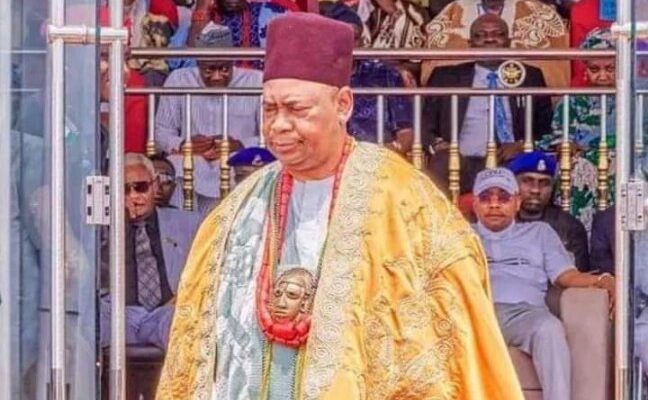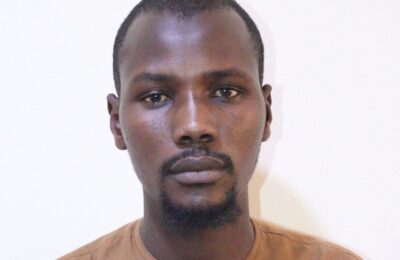When Ejubeju Ailo the Attah Agaabaidu, of Igala, rises, even silence listens. His throne is not crafted from mortal wood or ornamental gold—it is carved from ancestral duty, spiritual burdens, and sacred tears. His Royal Majesty, Matthew Alaji Opaluwa Ogwuche Akpa II, enthroned on March 4, 2022, as the 28th Attah of Igala, is not just a monarch—he is the covenantal embodiment of a people’s prayer. I speak as Ajofe Sunday Suleiman, the Onu Awohi Attah Igala, Praise Singer from Ehecho Ejinya in Udama District, not as a distant witness but as a son whose voice is carved by heritage and whose tongue is soaked in ancestral rhythms. In an age where kings chase relevance through fleeting titles, Agaabaidu remains eternally relevant through righteousness and divine mandate.
The kingship of Agaabaidu is not a regalia of convenience but a garment of consequence. In Igala we say, “Ane urah onwu ‘abi Onu enyo” (A good land births a good king). This land— Idah, Ankpa, Dekina, Ibaji, and beyond—rejoices because our king does not lord over us; he fathers us. While others govern with pomp, he governs with purpose. While others decorate their power with fear, he crowns his with wisdom. It is no exaggeration to say: Attah odudu meme omi odudu kia kpule chi (The Attah is like a heavy morning rain that stops a man about to travel)—for when he speaks, everything halts. He is that divine interruption sent to re-order our chaos with peace.
His kingship is more than political—it is spiritual, generational, and prophetic. Rooted in the blood of Princess Inikpi (oma ufedo baba) and great wisdom of Ayegba Oma Idoko, the throne is not inherited by mere men but handed down by the Ojochamachala (God Almighty). It is not just about succession—it is about sacrifice. Agaabaidu wears not just a crown, but a calling. His reign heals the broken, shelters the poor, disciplines with dignity, and speaks for the voiceless. He does not need palace walls to influence—his influence is felt in the market woman’s prayer, in the orphan’s testimony, in the widow’s peace. Even the stranger who drinks from the well of his generosity knows that this king is not ordinary.
As the Onu Awohi, I declare with ancestral reverence that we sing not from a place of flattery but from a covenant of remembrance. The people of Ehecho Ejinya do not observe the throne from afar—we hold the soul of it. We are sons of Ayegba , daughters of Inikpi , spiritual allies in the divine contract that forged Igala identity. Our chants are not just melodies—they are weapons, memories, prayers, and historical compasses. Our role is not for applause but alignment. We say in Igala, “Ene kia ch’okpo echubi lim odu aja bi olu ina n” (He who fears the night does not insult the sun). The Attah is no mere man—he is the sun at midnight, the lion whose roar reorganizes the forest.
The dignity of the Attah cannot be reduced to titles, nor should it be confined to the palace as the strangers in the land refers him as Attah Idah. He is the soul of our unity. We recall: “ Ogwu kpai ene ogwu anuja n” (The medicine and the one who made it must never fight). We, the Praise Singers, are the sacred medicine that protects this throne. When chaos strikes, our words become shields. When peace prevails, our songs become sweet incense before heaven. We are not entertainers—we are ancient echoes, keeping the lineage alive through declarations that thunder louder than drums.
The Attah is the breath of Igala identity. He is the flame that refuses to die in a generation of cultural amnesia. His silence disciplines, his voice instructs, and his presence restores. In the wisdom of the elders: “Attah ch’ohimini ki ma gbe” (The Attah is the ocean; the water there does not dry in dry season). This throne does not decay. This king does not fade. This heritage cannot be bought or sold. In a nation drowning in moral decay, our Agaabaidu is an ark.
Let it echo through the hills of Dekina, the rivers of Ibaji, the rocks of Ankpa, and the plains of Idah: Agaabaidu is not alone. The voice of Ehecho Ejinya shall never be silent. We stand beneath him, as Aaron held up Moses’ hands, singing not from flattery, but from fire. We declare boldly: Attah ch’ucha, oje kidefu ogbo olopu aje i (The Attah is the pot; the food is for the entire clan). He is not king for Idah alone—he is king for all.
And so we sing, and will keep singing—till the moon forgets the night and the River Niger forgets its path. Our tongues shall not be weary. Our drums shall not go silent. For we praise Agaabaidu not because he is seated, but because he is sent. A king whose life is a proverb, whose heart is a covenant, and whose throne is home to the soul of a people.
May his reign be long. May his hands be strengthened. May his voice always guide.
“One ille i anyanyi inacha Attah; Attah cha kwu n.”
(The Attah is not mocked; the Attah does not die.)
– HRH, Ajofe Sunday Suleiman
Chief Praise Singer (Onu Awohi Attah Igala) from Ehecho Ejinya, Udama District, Ankpa LGA, Kogi State




